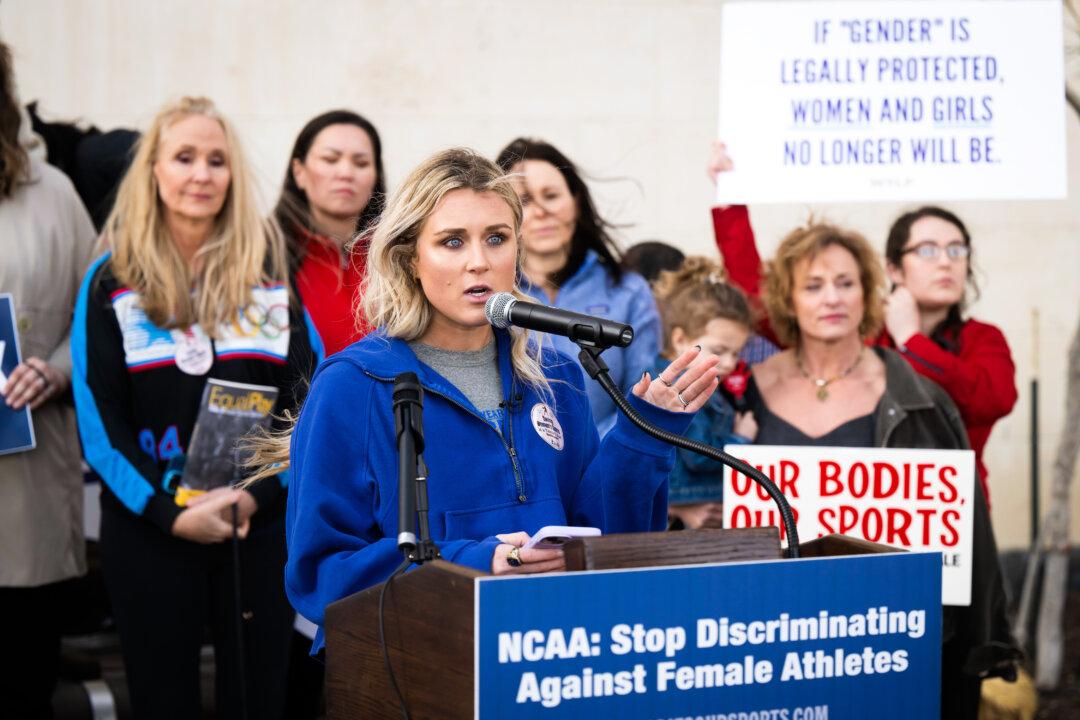Riley Gaines, a former National Collegiate Athletic Association (NCAA) swimmer and advocate against biological males competing in women’s sports, described feeling “terrified” the moment before she was physically assaulted by a transgender activist at San Francisco State University earlier this week.
She was on campus on the evening of April 6 to give a speech about saving women’s sports to an audience of about 80 to 100 people, about half supporters and half protesters, she said.



